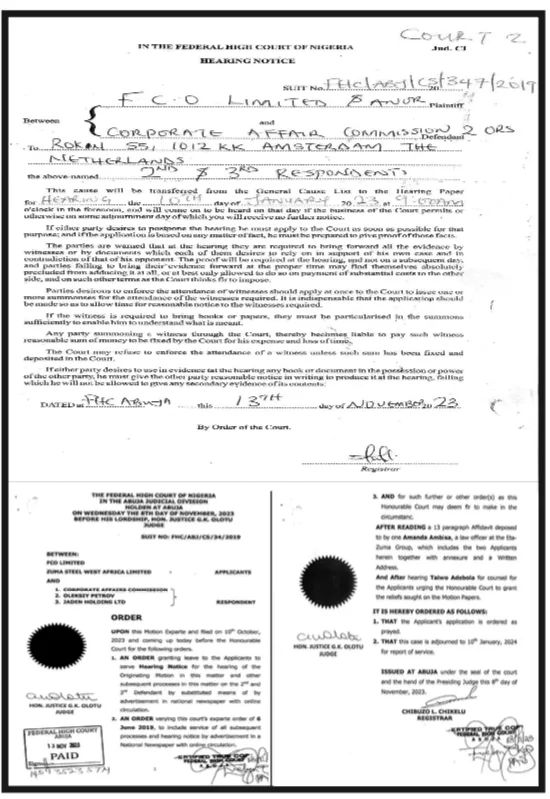In the intricate web of Nigeria’s healthcare landscape, a group of unsung heroes emerges—the voluntary blood donors. As the nation observes National Blood Donor Day, it is imperative to shed light on these selfless individuals and advocate for their recognition through national honors bestowed by the federal government.
The tireless efforts of voluntary blood donors form the lifeblood of the National Blood Service Commission (NBSC), which strives to ensure a secure, high-quality, and sufficient blood supply across the nation.
Their altruistic contributions go beyond benevolence; they are the heartbeat of a system that caters to the health and well-being of fellow citizens. Leading the pack of these altruistic heroes is Nathan John Ankpa who has donated blood voluntarily for 77 times – he holds the unmatched record of being Nigeria’s highest blood donor. Following in suit is Micheal Msugh with 76 times donations with Nigeria’s highest female blood donor Hafsat Isah with a total record of 46 donations. This trio represents the hundreds of voluntary blood donors in Nigeria.
The NBSC, under the stewardship of Dr. Suberu Eneye.Jimoh has made remarkable strides in establishing a resilient blood donation infrastructure. Yet, the success of this endeavor hinges on the dedication of voluntary donors who, despite challenges, give without expecting any remuneration. Their commitment is a beacon in a landscape often marred by risks associated with commercially sourced blood.
In recognition of their exemplary service, it is fitting for the federal government to consider honoring these blood donors with a national award. Such recognition would not only express gratitude for their vital role but also inspire others to follow in their altruistic footsteps. After all, certain individuals who excelled in personal professional, and nationalistic strides are decorated with national honour, therefore, altruistic heroes who give the gift of pricelessness sure deserve national honours.
Beyond the individual act of blood donation, these volunteers embody the collective strength of a nation that cares for its people. By conferring a national honor, the government would not only express appreciation but also foster a culture of voluntary blood donation embedded in the national psyche.
This proposed recognition aligns with global practices where exceptional contributions in various fields are acknowledged. Just as achievements in science, arts, and sports are celebrated, honoring voluntary blood donors would underscore the significance of their service to the nation’s health.
Moreover, such a gesture would elevate the status of blood donation, dispelling misconceptions and fears associated with the process. It would send a powerful message that giving the gift of life is a noble act deserving the highest commendation.
As Nigeria celebrates National Blood Donor Day, let us not only applaud the achievements of the NBSC but also recognize the silent heroes—the voluntary blood donors. Their contributions transcend the physical act of giving blood; they embody the essence of unity and care for one another. It is time for the federal government to consider the establishment of a national honor for these individuals, ensuring that their altruism is etched into the annals of the nation’s history.
Voluntary unpaid blood donation serves as the lifeblood of healthcare systems, playing a pivotal role in meeting the constant demand for blood products. By prioritizing this practice, governments can establish a sustainable and reliable source of blood, reducing dependency on paid donations and minimizing potential ethical concerns.
Civil society organizations are key stakeholders in mobilizing communities to embrace the culture of voluntary donation. Incentives, such as public recognition or certificates, serve as powerful motivators, fostering a sense of pride and accomplishment among donors. This not only strengthens the bond between individuals and their communities but also contributes to building a robust foundation for a compassionate and supportive society.
On an individual level, creating incentives encourages people to view blood donation as more than a charitable act—it becomes a personal commitment to the well-being of others. Incentives may include priority access to certain health services or preferential treatment during emergencies, reinforcing the idea that voluntary blood donation is not only a selfless act but also one that comes with tangible benefits.
In the larger context, promoting voluntary unpaid blood donation reflects a shared responsibility for public health. It aligns with the principles of solidarity and community well-being, emphasizing that everyone has a role to play in ensuring a readily available and safe blood supply. By making this a priority and implementing effective
incentives, we foster a culture of altruism that has far-reaching positive impacts on both individuals and society as a whole.











